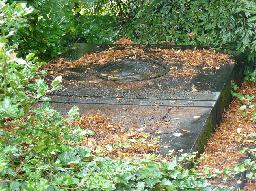Fanck, Arnold |
| DIRECTOR (GERMANY) |
|
BORN 6 Mar 1889, Frankenthal, Rheinland-Pfalz - DIED 29 Sep 1974, Freiburg im Breisgau, Baden-Württemberg GRAVE LOCATION Freiburg im Breisgau, Baden-Württemberg: Hauptfriedhof, Friedhofstrasse |
|
Dr. Arnold Fanck studied geology and worked as a ski teacher. In 1913 he made a documentary on climbing the Monte Rosa and since then he was known for his movies on mountains and nature. In 1919 he had a son, Arnold Ernst Fanck (1919-1994). Together with others, in 1920 he founded the Berg- und Sportfilm GmbH Freiburg. In the same year he married Natalie Zaremba, who was a friend from the time he studied in Zürich. Soon after the marriage she fell ill with cancer and they probably divorced. In 1924 he made "Der Berg des Schicksals" with Luis Trenker in 1926 "Der Heilige Berg" with Trenker and Leni Riefenstahl. His "Die weiße Hölle vom Piz Palü" (1928, a collaboration with G.W. Pabst) was an international success and SOS Eisberg (1932) was filmed on location in Greenland. When the nazis came to power he initially refused to cooperate. When this resulted in financial problems he changed his mind and "Ein Robinson" (1938/1939), shot in Chile, was a propaganda movie. In April 1940 he gave in and joined the NSDAP. After the war his movies from the nazi period were banned. He was no longer able to make new movies and worked in the woods. In 1934 he had married the AAFA Film secretary Elisabeth Kind (1908-1995) in Berlin after she had been his secretary and his lover. They had a son in 1935, Hans-Joachim (d.2015), but the marriage ended in divorce in 1957. In 1957 "Der Ewige Traum" was shown on a festival, but only after his movies were broadcasted on television his financial situation improved. He married Ute Dietrich (b.1940) in 1972. Two years later he died in Freiburg. Related persons • was the lover of Riefenstahl, Leni • directed Riefenstahl, Leni |
| Images |
Sources • Arnold Fanck - Wikipedia (DE) |



